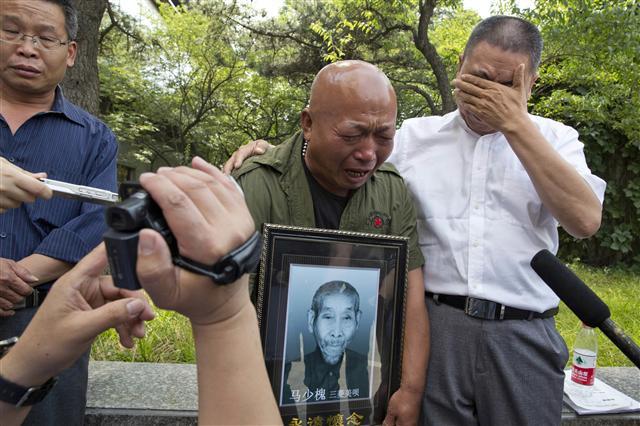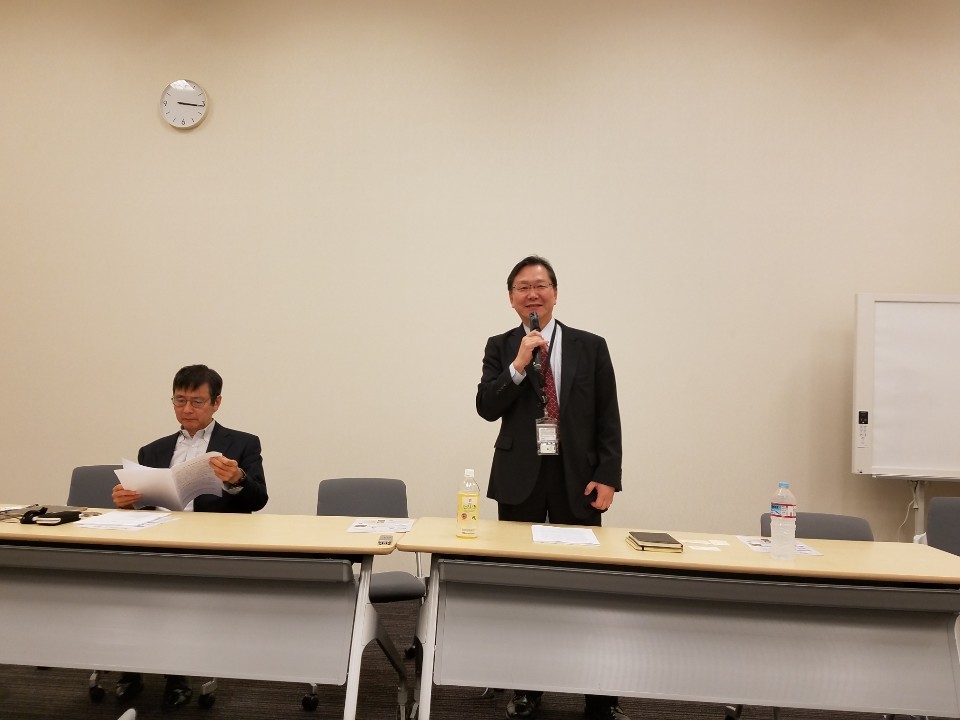 |
|
The son of a Chinese victim of forced labor by the Japanese company Mitsubishi Materials (formerly Mitsubishi Mining) weeps during an interview in Beijing while holding a photograph of his father after the company agreed to pay reparations of 100,000 yen (US$886) to each of the victims. (AP)
|
Only 11 of 3,765 “eligible” individuals have received settlement
Japan’s Mitsubishi Materials (formerly Mitsubishi Mining) is planning to set up a fund for Chinese victims of forced labor within the year as part of a settlement reached with those victims, the Japanese press is reporting. Kyodo News reported on Nov. 5 that Mitsubishi Materials has agreed to create the fund before the end of this year, which marks the 40th anniversary of the signing of the Treaty of Peace and Friendship between Japan and China. After Chinese victims filed a lawsuit in the Chinese courts in 2014, Mitsubishi Materials announced in June 2016 that it felt “keen remorse” that Chinese had been conscripted into labor during World War II and would pay 100,000 Chinese yuan [US$14,440] per person as evidence of this remorse. The company said it would also create a fund to install a memorial stone, hold memorial services and to track down missing victims or their family members. The company said that 3,765 individuals would be eligible for the settlement, a figure based on a report about Chinese workers in each workplace that was composed by the Japanese Ministry of Foreign Affairs in 1946. Thus far, only 11 of the victims have received the settlement. Mitsubishi Materials has had difficulties paying the money because it was uncertain whether the surviving family members were the heirs to the victims’ property, but the organization running the fund should be able to resolve this problem once it comes into being. The fund is supposed to be called the “Fund for Historical Human Rights and Peace.” The company is planning to pay 100 million yen (US$882,300) to build the memorial stone and 200 million yen (US$1.8 million) to look for the missing family members. The Japanese government’s commitment to improving relations with China appears to be a factor in how quickly the company has moved to pay compensation. Mitsubishi Materials refuses to provide an apology or compensation to Korean victims. But it remains to be seen whether the company will be able to finalize its settlement with the Chinese as planned. Several of the victims’ families are planning to continue their lawsuit. The position of the Japanese government and companies that Chinese can be compensated but Koreans cannot is based not only on the 1965 agreement between Japan and South Korea that settled outstanding claims but also on the fact that Korean workers were conscripted in accordance with laws during the colonial period, whereas China had been invaded by Japan.
 |
|
A group of Japanese attorneys release a statement on Nov. 5 in Tokyo denouncing the attitude of the Abe administration that the harm caused by the forced labor was completely and finally resolved by a 1965 agreement signed by the South Korean and Japanese governments. (Cho Ki-weon, Tokyo correspondent)
|







